Volvo XC60 vs Hyundai IONIQ 9 - Differences and prices compared
Compare performance (455 HP vs 428 HP), boot space and price (49200 £ vs 58700 £) at a glance. Find out which car is the better choice for you – Volvo XC60 or Hyundai IONIQ 9?
Costs and Efficiency:
Looking at overall running costs, both models reveal some interesting differences in everyday economy.
Volvo XC60 has a a bit advantage in terms of price – it starts at 49200 £, while the Hyundai IONIQ 9 costs 58700 £. That’s a price difference of around 9523 £.
As for range, the Hyundai IONIQ 9 performs significantly better – achieving up to 620 km, about 538 km more than the Volvo XC60.
Engine and Performance:
Power, torque and acceleration say a lot about how a car feels on the road. This is where you see which model delivers more driving dynamics.
When it comes to engine power, the Volvo XC60 has a hardly perceptible edge – offering 455 HP compared to 428 HP. That’s roughly 27 HP more horsepower.
In acceleration from 0 to 100 km/h, the Volvo XC60 is minimal quicker – completing the sprint in 4.90 s, while the Hyundai IONIQ 9 takes 5.20 s. That’s about 0.30 s faster.
In terms of top speed, the Hyundai IONIQ 9 performs minimal better – reaching 200 km/h, while the Volvo XC60 tops out at 180 km/h. The difference is around 20 km/h.
There’s also a difference in torque: Volvo XC60 pulls minimal stronger with 709 Nm compared to 700 Nm. That’s about 9 Nm difference.
Space and Everyday Use:
Cabin size, boot volume and payload all play a role in everyday practicality. Here, comfort and flexibility make the difference.
Seats: Hyundai IONIQ 9 offers noticeable more seating capacity – 7 vs 5.
In curb weight, Volvo XC60 is distinct lighter – 1900 kg compared to 2594 kg. The difference is around 694 kg.
In terms of boot space, the Volvo XC60 offers clearly perceptible more room – 483 L compared to 338 L. That’s a difference of about 145 L.
In maximum load capacity, the Hyundai IONIQ 9 performs clearly perceptible better – up to 2419 L, which is about 876 L more than the Volvo XC60.
When it comes to payload, Hyundai IONIQ 9 to a small extent takes the win – 643 kg compared to 550 kg. That’s a difference of about 93 kg.
Who wins the race?
The Hyundai IONIQ 9 proves to be dominates this comparison and therefore becomes our DriveDuel Champion!
Hyundai IONIQ 9 is the better all-rounder in this comparison.

Hyundai IONIQ 9
Costs and Consumption
View detailed analysis
Engine and Performance
View detailed analysis
Dimensions and Body
View detailed analysis
Volvo XC60
The Volvo XC60 blends Scandinavian calm with confident presence, offering a cabin that feels plush without shouting for attention. It’s a smart pick for buyers after a composed ride, clever practicality and thoughtful safety touches — it even makes running the family shuttle feel almost serene, which is a small miracle.
details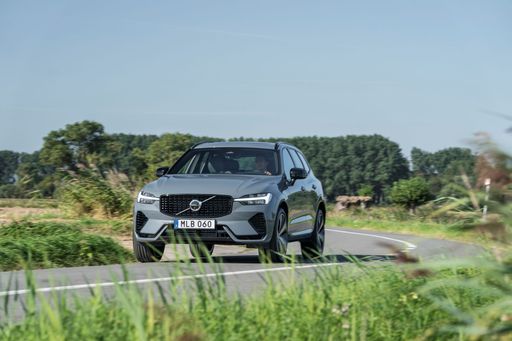
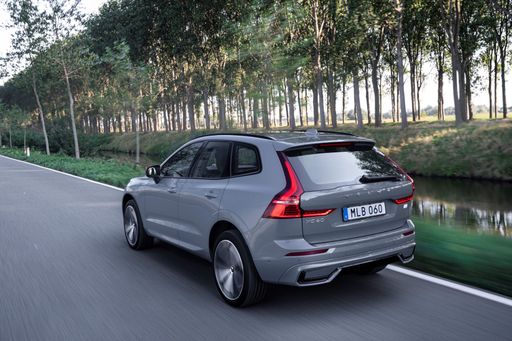
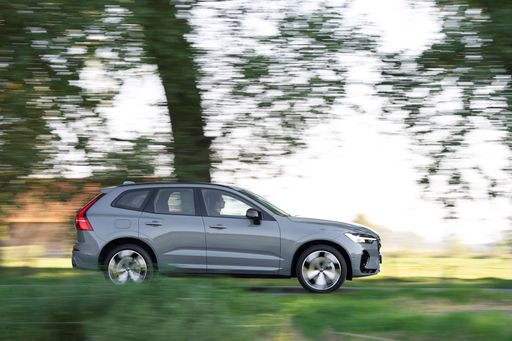
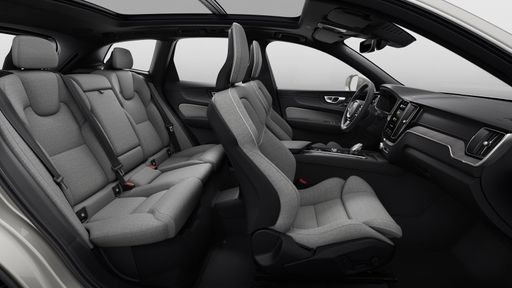
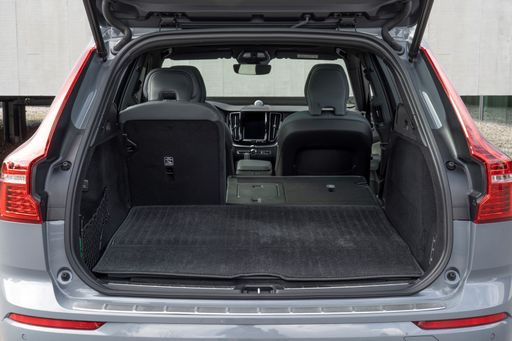
Hyundai IONIQ 9
The Hyundai IONIQ 9 is a bold step forward in the automotive world, combining cutting-edge electric technology with a sleek and modern design. This model stands out with its spacious interior and advanced features, ensuring both comfort and convenience for drivers and passengers alike. As Hyundai pushes the envelope in eco-friendly innovation, the IONIQ 9 represents the future of sustainable driving with its impressive range and performance capabilities.
details

|
|
|
|
|
Costs and Consumption |
|
|---|---|
|
Price
49200 - 75100 £
|
Price
58700 - 74400 £
|
|
Consumption L/100km
2.8 - 7.5 L
|
Consumption L/100km
-
|
|
Consumption kWh/100km
-
|
Consumption kWh/100km
19.9 - 20.6 kWh
|
|
Electric Range
74 - 82 km
|
Electric Range
600 - 620 km
|
|
Battery Capacity
14.70 kWh
|
Battery Capacity
110 kWh
|
|
co2
64 - 169 g/km
|
co2
0 g/km
|
|
Fuel tank capacity
71 L
|
Fuel tank capacity
-
|
Dimensions and Body |
|
|---|---|
|
Body Type
SUV
|
Body Type
SUV
|
|
Seats
5
|
Seats
7
|
|
Doors
5
|
Doors
5
|
|
Curb weight
1900 - 2150 kg
|
Curb weight
2594 - 2689 kg
|
|
Trunk capacity
468 - 483 L
|
Trunk capacity
338 L
|
|
Length
4708 mm
|
Length
5060 mm
|
|
Width
1902 mm
|
Width
1980 mm
|
|
Height
1651 - 1655 mm
|
Height
1790 mm
|
|
Max trunk capacity
1528 - 1543 L
|
Max trunk capacity
2419 L
|
|
Payload
510 - 550 kg
|
Payload
586 - 643 kg
|
Engine and Performance |
|
|---|---|
|
Engine Type
Petrol MHEV, Plugin Hybrid
|
Engine Type
Electric
|
|
Transmission
Automatic
|
Transmission
Automatic
|
|
Transmission Detail
Automatic Gearbox
|
Transmission Detail
Reduction Gearbox
|
|
Drive Type
All-Wheel Drive
|
Drive Type
Rear-Wheel Drive, All-Wheel Drive
|
|
Power HP
250 - 455 HP
|
Power HP
218 - 428 HP
|
|
Acceleration 0-100km/h
4.9 - 6.9 s
|
Acceleration 0-100km/h
5.2 - 9.4 s
|
|
Max Speed
180 km/h
|
Max Speed
190 - 200 km/h
|
|
Torque
350 - 709 Nm
|
Torque
350 - 700 Nm
|
|
Number of Cylinders
4
|
Number of Cylinders
-
|
|
Power kW
184 - 335 kW
|
Power kW
160 - 315 kW
|
|
Engine capacity
1969 cm3
|
Engine capacity
-
|
General |
|
|---|---|
|
Model Year
2025
|
Model Year
2025
|
|
CO2 Efficiency Class
F, B
|
CO2 Efficiency Class
A
|
|
Brand
Volvo
|
Brand
Hyundai
|
What drive types are available for the Volvo XC60?
The Volvo XC60 is offered with All-Wheel Drive.
The prices and data displayed are estimates based on German list prices and may vary by country. This information is not legally binding.
